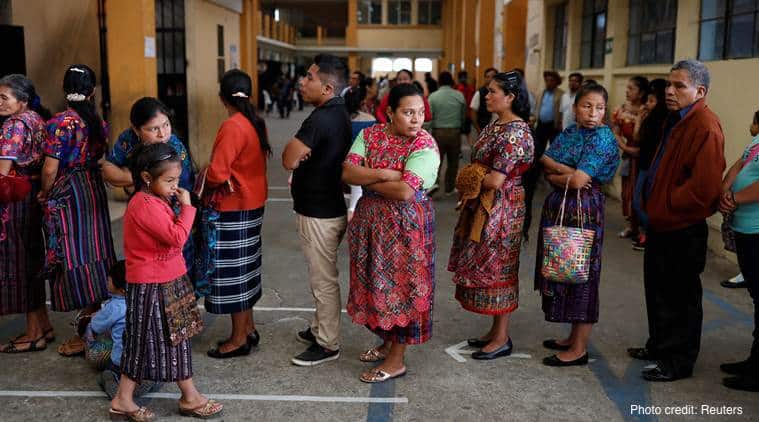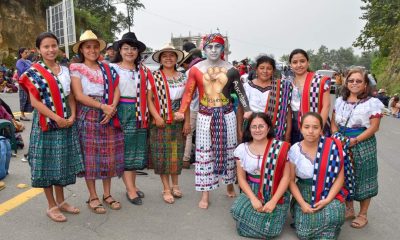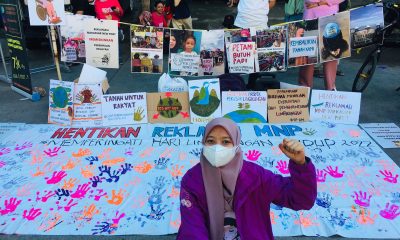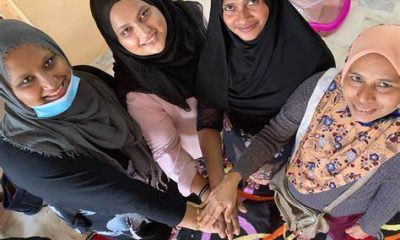By Laura Carlsen Km. 148 is a nodal point on the Interamerican Highway that connects…

By Laura Carlsen
On August 20, Guatemalans achieved a victory they didn’t expect from the polls—wresting control out of the hands of a powerful elite that had imposed increasingly authoritarian rule over 17 million people, among the most impoverished in the world.
Bernardo Arevalo—diplomat, academic, and son of former president Juan Jose Arevalo—won a landslide victory in Guatemala’s presidential elections, opening up a welcome new chapter in the nation’s political history. Thousands came out to celebrate with bottle rockets, fireworks, and bands in a rare show of enthusiasm following years of public disgust with the futility of elections and the corruption of mainstream politicians. Although the challenges ahead are huge, the new president-elect has renewed people’s hope.
“It’s a big challenge since in four years you can’t achieve the deep structural changes needed, but it’s very positive because it’s the revival of hope,” says Patricia Ardon, JASS regional director and Guatemalan human rights defender.
The candidate of the young party, Movimiento Semilla (Seed Movement), drew a record number of people to the polls in a country with a notoriously low voter turnout. Skepticism toward elections rose during the past years of government controlled by a small and insatiable elite. These politicians and business leaders became known as the ”Pact of the Corrupt” for ramming through legislation to protect their own power and wealth, while closing civic spaces for democratic forces in the country.
They molded Guatemala’s weak democratic institutions into tools for their interests and forced into exile, imprisoned, or murdered those who crossed them, including scores of women defenders of land and territory fighting against extractive projects that threatened their land and natural goods, indigenous culture, public health, and women’s rights.
People from all sectors, including some dissidents among the elite, gave Arevalo his big win. Youth and women played a prominent role in voting, in the campaign, and through demonstrations in defense of democracy.
Reactions and power dynamics
When the progressive candidate Arevalo unexpectedly made it through the first round of voting June 25 into the run-off against establishment figure and former First Lady, Sandra Torres, the ruling elite panicked. Arevalo had been polling 8th among 22 candidates, so he flew in under the radar after authorities had already disqualified three candidates they considered not sufficiently loyal to their interests.
The first response of the losing parties was to call into question the process and and request a review of the tally sheets. When that failed, a government prosecutor known for his corrupt allegiance to the elite attempted to rescind registration of the Semilla party. They raided the Semilla party headquarters, and continued to employ “legal” measures to cancel the registration, including a ruling to cancel the registration from the chair committee of Congress that was blatantly illegal and unconstitutional. Although the party was allowed to participate in elections, this case is still technically open. To date, Torres has refused to recognize defeat.
The consolidation of an authoritarian group in power in Guatemala has been in part a response to people’s victories. The 1996 Peace Accord brought an end to the bloodshed of the internal armed conflict but failed to dismantle dominant power structures or bring justice. In recent years, indigenous women have won key cases against crimes of the state committed during the armed conflict of the ‘80s, such as the landmark trial of the dictator Efrain Rios Montt for genocide, and the case of Sepur Zarco and the Achi women who faced down racism and machismo to prosecute members of the security forces for the sexual violence they suffered. The International Commission Against Impunity in Guatemala (CICIG, by its Spanish initials) also made important inroads against corruption, closing in on numerous members of government.
The elite reacted by imprisoning movement leaders on false charges, launching smear campaigns, planting corrupt judges and banishing honest ones. They kicked the CICIG out of the country in 2019. Scores of movement leaders and land and rights defenders have been criminalized. In Guatemala, the punishment for truth has been violence and repression, but the battles for justice just keep multiplying.
Those in power still control much of the press, Congress, and the judiciary, and analysts predict that attempts to dissolve the Semilla party and prosecute its leaders on false charges will continue, accusations that also extend to citizens who have risen up against corruption. Such tactics of lawfare and selective repression are likely to intensify, and political violence cannot be ruled out, but then these have already been regular occurrences under the current government. Guatemala enters a stage of deep political crisis,, as the lame-duck government of Alejandro Giammattei reigns over a perilously long period until the inauguration of the new government on January 14.
A chance for democracy
The victory at the polls is only the first step. Dismantling the illicit power accumulated by the elite will be tough, with a Congress stacked to protect privilege and a justice system largely taken over by corruption.
But in the streets and villages, the people have also shown their power. Repudiating the Pact of the Corrupt at the polls renewed hopes of taking back their country and their future. For vital struggles to defend land and territory from mining, monocrops, and other extractive industries—many led by women in indigenous and rural organizations—a new government would bring a respite from constant criminalization and repression. At least in the executive branch, transnational corporations might no longer encounter an unconditional ally for their pillage.
Ardon reflects on the impact for movements. “For us, for women land defenders, the persecution and impunity will stop, or at least there will be a reprieve under the new government. It’s a relief for women and for indigenous peoples, because the government-elect has stated that it will declare a head-on battle against impunity and corruption.”
She acknowledges that a key challenge will now be managing expectations. Global capitalism is a tiger that cannot change its stripes. The neo-liberal economic structures keep weak nations like Guatemala feeding the system with natural resources and a cheap workforce, both in the country and as migrant labor. Patriarchy is also alive and well. The Guatemalan elite relied heavily on discourses and actions against diversity and women’s movements, promoting fundamentalisms and aggressiveCold War rhetoric in the campaign—messaging that echoes that of the well-funded and highly organized international far right, which openly supports the country’s elite. Guatemalan social movements are clear that, without popular resistance and pressure from below, even mild reforms will be impossible.
And despite the current euphoria, skepticism regarding the effectiveness of electoral politics in real democratic transition continues.
“The northern model of formal democracy hasn’t really been developed or adopted in our countries. There is an exercise of democracy, but it does not correspond to the concept of collective power, to the cosmovision of the peoples in many cases,” states Ardon.
This is the dual nature of their hope today, a realistic hope that sees opportunities while assessing risks and obstacles. For feminist and women’s movements, the election results are a stepping stone. The change in government could provide a better base of support for defending their causes, their bodies, and their lives while moving toward what they really want and need—a democracy that wipes out institutionalized inequality and covers all spheres, from the home to the National Palace.
Patricia Ardon concludes: “Formal democracy is in crisis throughout the region, because it doesn’t lead to deep change, it doesn’t resolve the root problems. These elections mark a historic moment, but the task, the challenge, is much greater. We have to use this historic opportunity to build a deep democracy that focuses not only on who’s elected but on eliminating all inequalities and guaranteeing individual and collective wellbeing.”




























